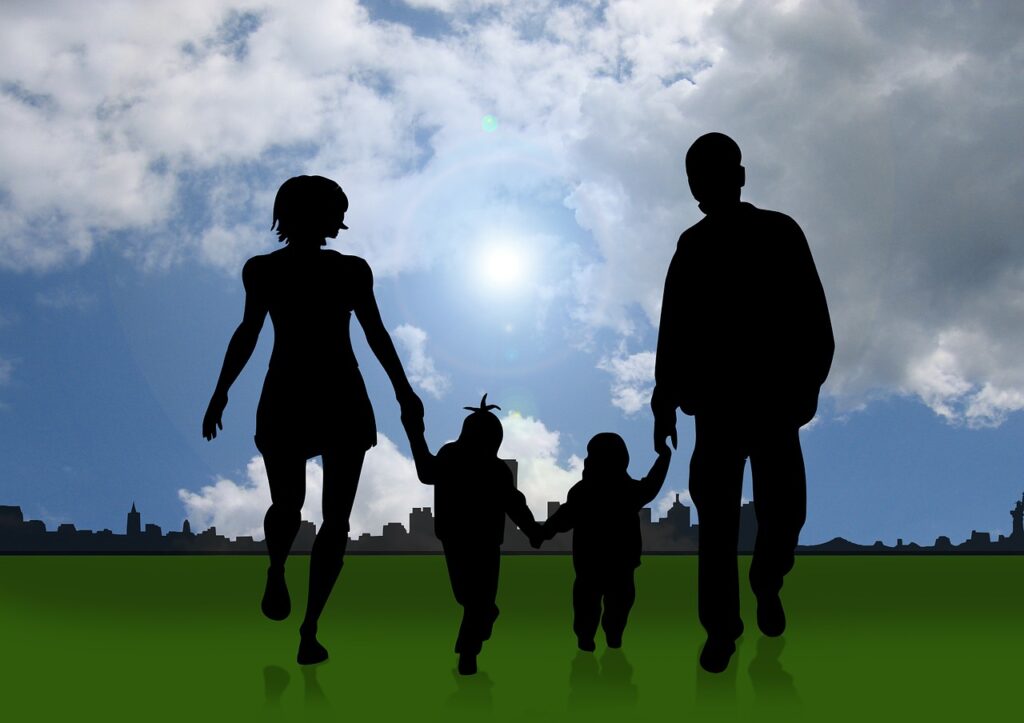“Is support for single motherhood and cohabitation falling in the U.S.?” reads the headline of an article published on May 4, 2022, by Alysee ElHage of the Institute for Family Studies (IFS). Indeed, two recent studies seem to show that support for both has declined as more people have had negative experiences with them and that cohabitation rates have plateaued for the same reason.
According to a new survey by the Pew Research Center, the views of American adults regarding single motherhood and cohabitation have grown more negative between 2018 to 2021. In regard to single motherhood, 47% of American adults in 2021 believe that it “is generally a bad thing for society,” a 7-point increase from 2018, while only 10% believe it is “generally a good thing for society,” a 3-point decrease from 2018. Significantly, the increase in the negative views of single motherhood occurred among all adult groups. For example, among Republicans the number increased 9 percentage points (from 53% to 62%) while among Democrats in increased 6 points (from 30% to 36%). A particularly large shift occurred between adults aged 18–29, where the increase was 10 percentage points (from 32% to 42%).
Why the large increase in negative views of single motherhood? ElHage writes:
“Are Americans simply becoming more ‘judgmental’ about women raising children on their own? Dr. Stanley [University of Denver family scholar] said he doubts this is the case. Instead, he wondered ‘if this is the voice of ever-increasing experience with these relationship and family patterns. I would suspect it’s more about people experiencing how much harder it is to be a single parent.’”
Stanley posits that the recent pandemic also probably played a role in the increase: “’COVID has been much harder on some families than others, but it was surely very hard on single mothers.’”
The Pew study also found an increase in negative attitudes toward cohabitation between 2018 and 2021. During this period, the number of adults saying that cohabitation is “generally a bad thing for society” increased 5 points (from 19% to 24%) while the number saying it is “generally a good thing for society” decreased by 1 point (from 15% to 14%). Significantly, the increase in negative views regarding cohabitation occurred among most adult groups. For example, among Black adults the increase was 8 points and among white adults it was 5 points.
What could be the reason for the changing views of cohabitation? Again, negative experiences with it could be one answer. ElHage writes:
“He [Stanley] also offered another theory—that as more Americans have experienced cohabitation, either personally or through watching friends or family cohabit, more people are realizing that living together just does not compare to marriage in terms of relationship quality or stability… ‘Maybe part of the Pew story is that more people have cohabited now than ever before, and it is possible some have concluded it was not so great,’ he suggested. ‘Cohabiting relationships last about two years, and it seems likely that some people expected more than they got.’”
ElHage then notes another 2021 study in the American Sociological Association Contexts that documents how cohabitation rates appear to have stalled. Again, negative experiences of cohabitation may be one of the culprits for this change. ElHage states:
“As Stanley emphasized, Americans now have much more experience with cohabitation and may be more ‘cautious’ as a result. ‘People have seen scores of friends and family members move in together with more of those relationships ending than continuing, so it is possible that the bloom is off the rose a little bit,’ he said.”
All these trends could lead to one very positive result—more marriages and more children growing up in married-parent families. Indeed, research from all sides of the political spectrum shows that children and adults generally do best in a healthy married-parent family. ElHage writes:
“[I]f these trends continue, American adults holding more realistic views on the very real challenges of both cohabitation and single motherhood could be positive for the well-being of children—especially if these shifts lead to an increase in marital and family stability.”
So there you have it. American adults are viewing both single motherhood and cohabitation more negatively and cohabitation rates appear to have stalled. Having negative experiences themselves or learning of the negative experiences of family members and friends appears to be a reason why. Let’s hope that these trends go on so that more people will marry and more children will grow up in the best institution known for raising healthy children—the married-parent family.
